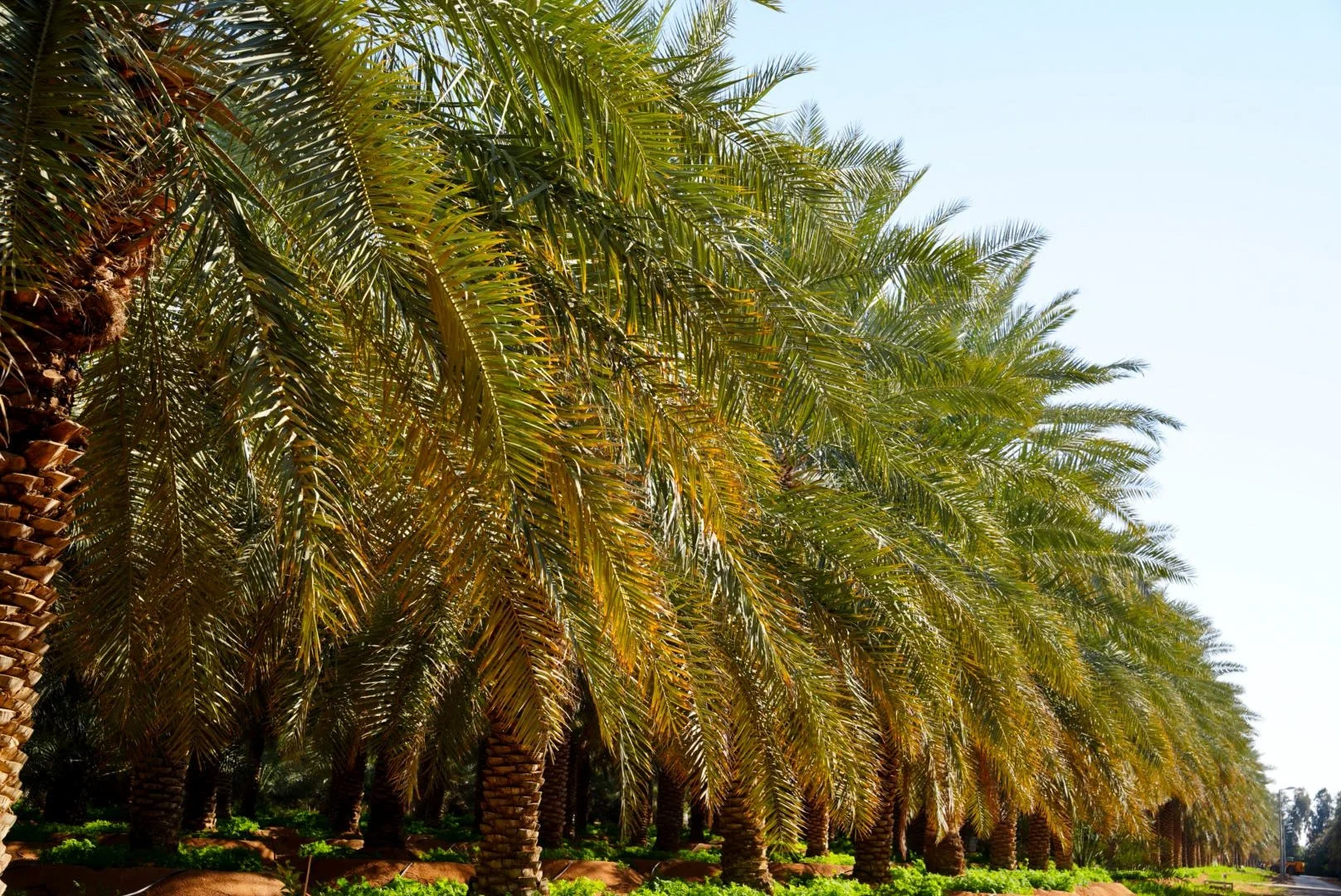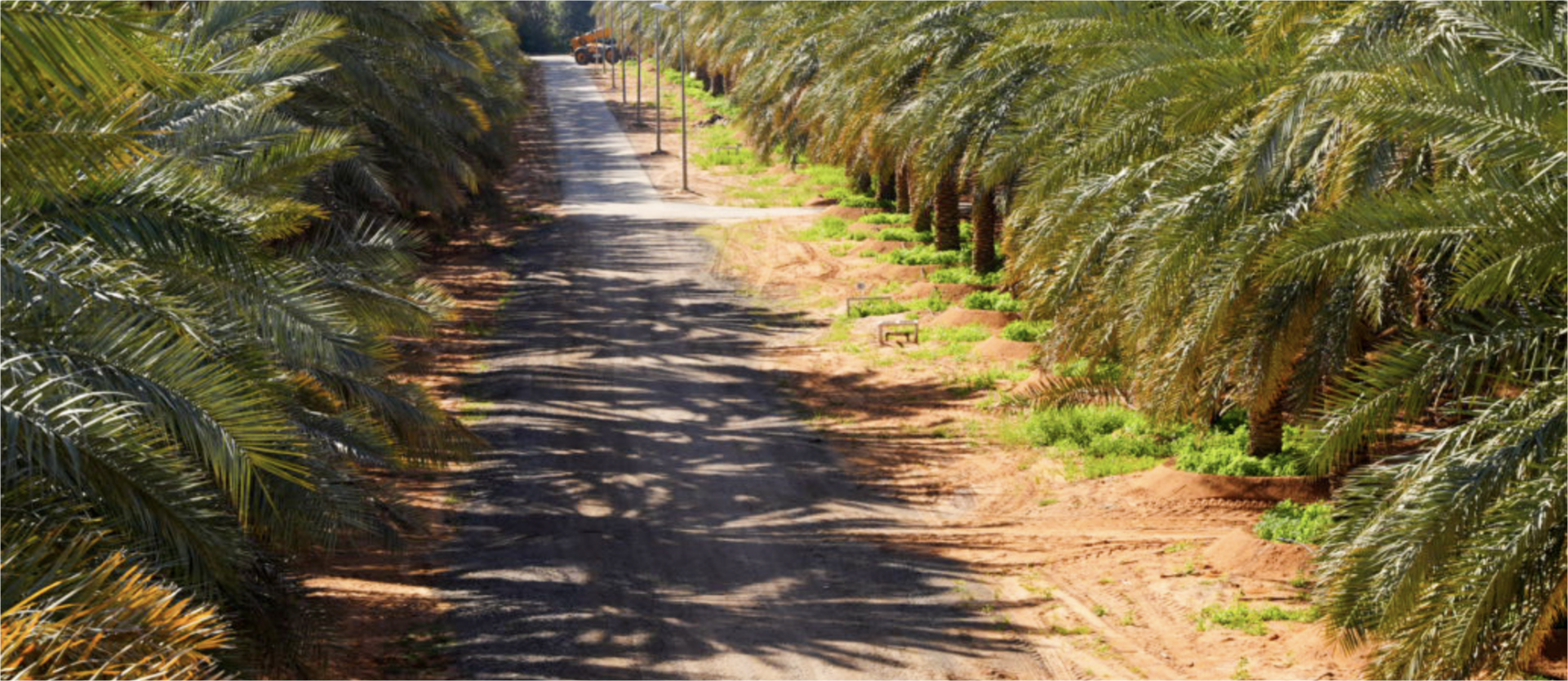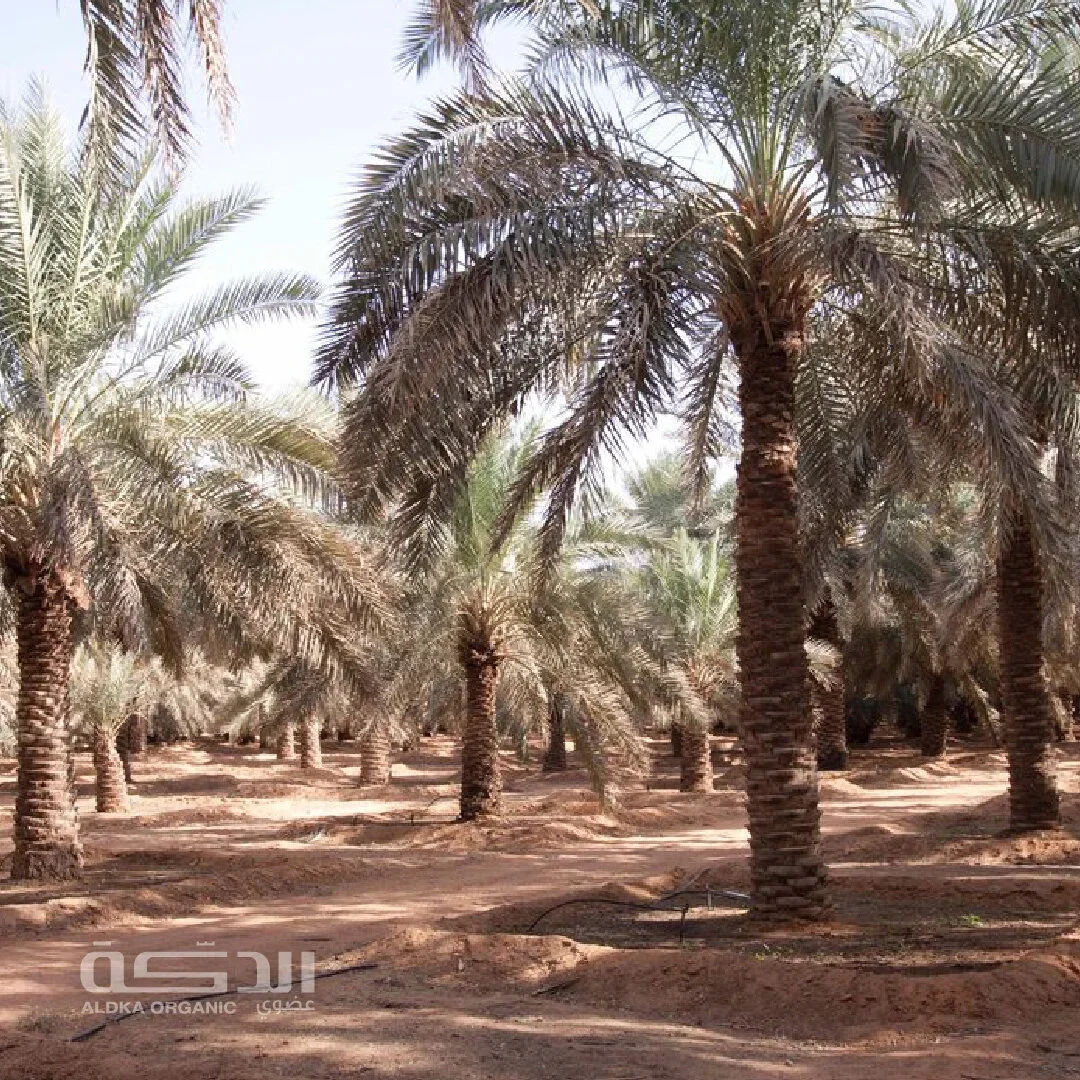
The Farm of Tomorrow Rooted in Today
A farm rooted deep in the heart of AlGhat, KSA.
Our family farm, Aldka, is located in Al Ghat, Saudi Arabia. The family connection to growing dates goes back at least 340 years and the passion is not limited to the owners of Aldka, but extends to the whole family.
We are passionate about the tree, its attributes and nutritional values and take pride in continuing a tradition and a heritage that sustained our forefathers.
It is more than just growing great dates, every box of our dates represents a community of dedicated professionals with specialized skills and a lot of hard work. What drives us is our passion and what guides us is our commitment to quality, innovation and exceptional service. We want to produce great dates and work with great people to do it.

The Farming Methodology
Immediately after the conclusion of the harvest, the cycle commences in late October, when we begin culling and shredding dead ferns and carry out weeding and soil cultivation around the palm trees, accompanied by a refined organic composting and soil nutrition program. Irrigation is critical at this stage as the palm is preparing for next season’s harvest. What happens in this window will be the base for the next harvest.
Pollination starts in late January and continues until mid-March. Once pollination is completed and the fruits set in, then we start the thinning of our date bunches in a continuous pursuit of a plum and succulent large date. The thinning process continues until mid-May. Harvest commences for some varieties in late July to early August (e.g., Sukari and Ajwa) while for others the harvest is in late September to early October.
Composting is an integral part of the sustainable date growing process, providing vital nutrients to the soil and to the palm trees that grow in it. To create a fully natural and sustainable compost,
we cull and shred dead ferns, mix it with animal manure and process to make a nutrient rich compost.
Composting
Each year, our farmers thin out each palm tree by hand, removing one fourth of the bunches and removing more than two thirds of each fruit stalk. This enables the palm to better serve the reduced number of dates - resulting in a full and plump date.
Thinning
There are a number of pests and fungi that can cause serious damage to date palms if no action is taken to prevent their occurrence. Treatment in an organic setting is difficult and, therefore, prevention is the norm and the goal.
Disease control
We begin harvesting our dates in late July / early August and continue until October, carefully selecting our dates by hand to ensure consistent premium quality.
Harvesting
Our natural product policy extends to fertilization, for which we rely on the recycling of the farm’s byproducts and dry ferns. We supplement this base with macro and micro-nutrients to provide the trees the essential nutrients they need.
Fertilization
Every year and upon the commencement of the harvest, we take soil samples for analysis. This not only helps us understand the nature of our soils but allows us to fine tune our fertilization methods and quantities for the next year.
Cultivation of Soil
Pollination is one of the key processes in date farming, as it has a profound impact on fruit yield, quality and development. Using mechanical means to support natural pollination is essential.
Pollination
Aldka cleans its dates with a unique and thorough technique not used on other farms, enabling our dates to be clean while retaining their natural properties.
Cleaning
The Farm Gallery






Selected. Premium. Nutrient Rich
A full range of premium organic dates await you.








